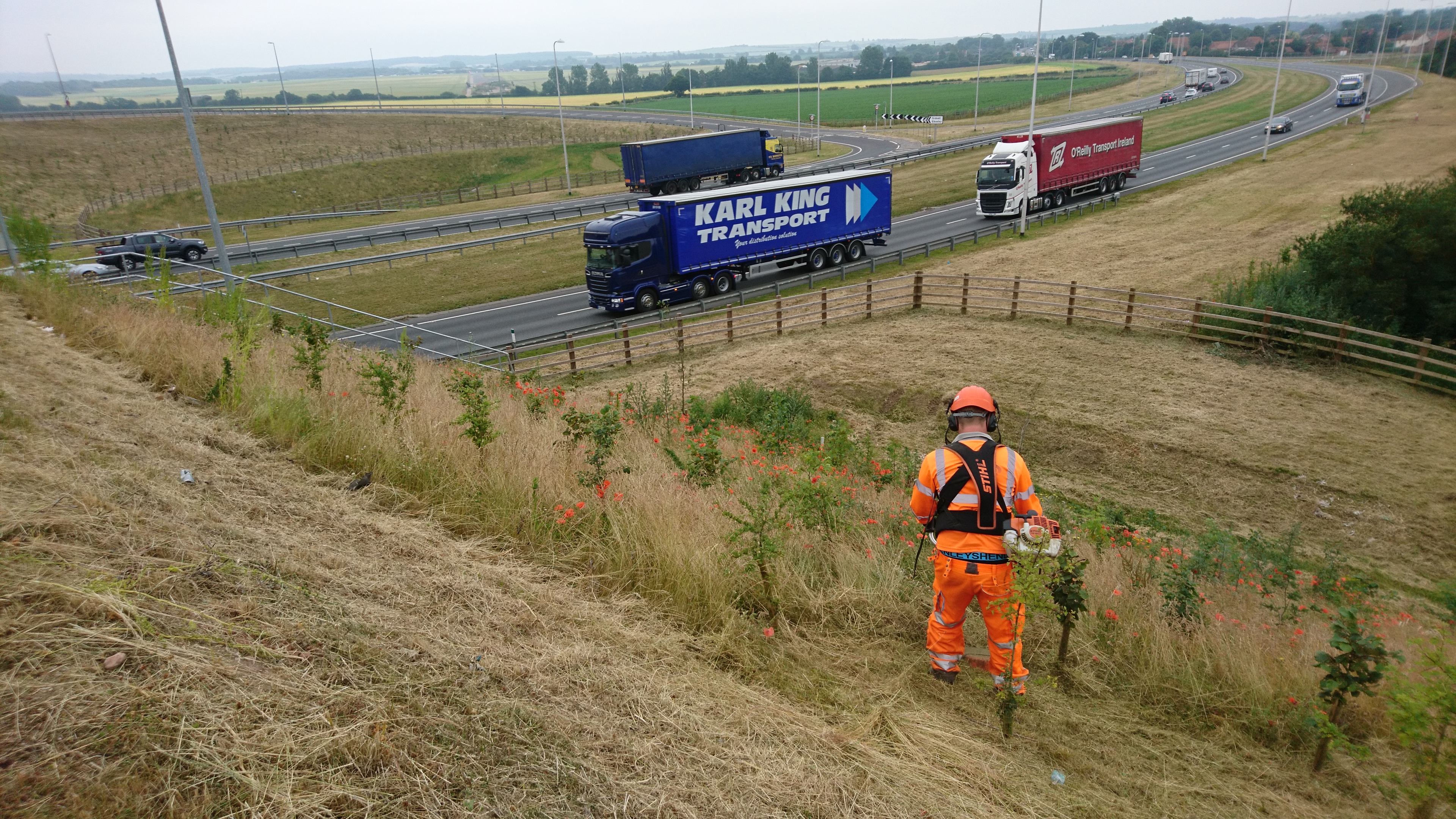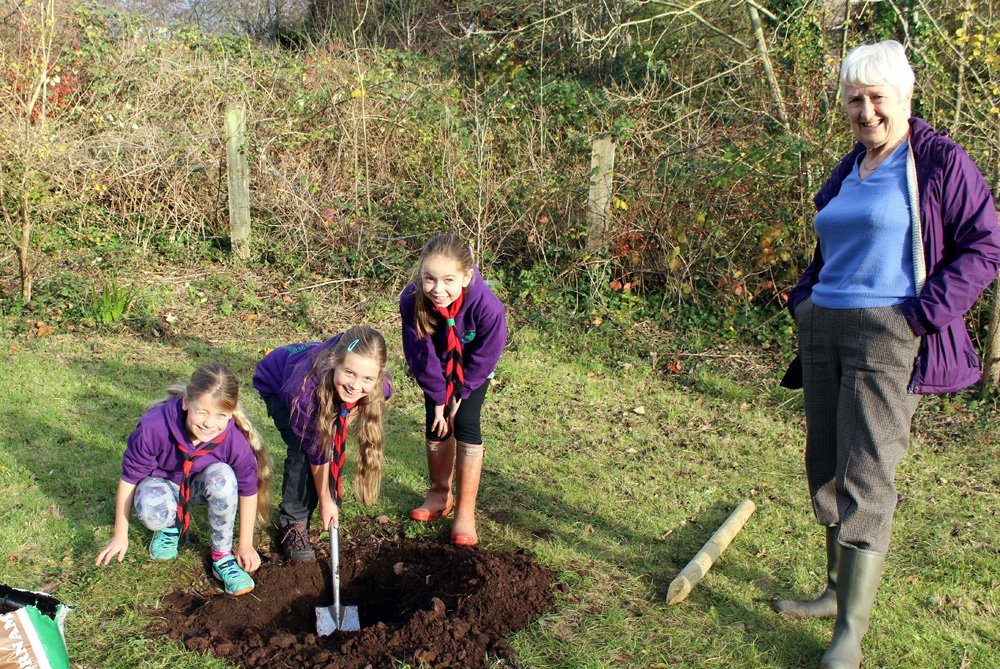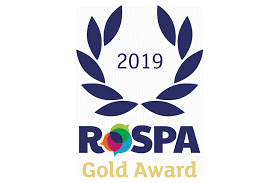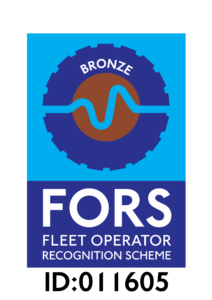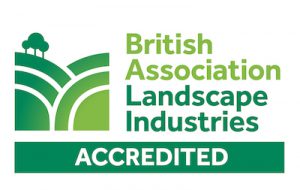ATM are proud to be advocates of creating biodiverse habitats and providing ecological solutions to enhance the botanical diversity in these areas.
This Thursday, we throw back to 2019, when ATM took part in the Big Biodiversity Challenge, organised by CIRIA - Construction Industry Research and Information Association.
ATM were awarded the Pollinator Award, for work with Kier and Highways England, on an area of 5.9 hectares of roadside verges that were selected for enhancement through the planting of bespoke wildflower seed mixes along the A38 in Devon.
Annual plants such as corn, marigold, poppy, corn cockle and camomile contribute to the tall, striking colourful display whilst other perennial species including betony, red clover, yellow rattle, bird’s foot trefoil, vetches and violets are seen closer to the ground.
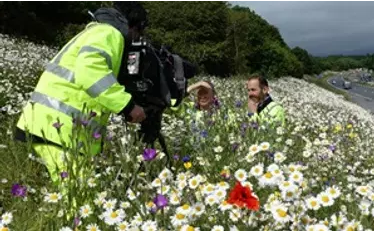
The project aimed to increase habitat connectivity by linking species rich grasslands, sustain and increase pollinator populations and other invertebrates and increase resilience of terrestrial wildlife for the long term.
Low botanical diversity was one of the main selection criteria in selecting sites to be enhanced, which were identified following targeted botanical surveys. The sites included large areas of rank grasslands, tall ruderals and bramble scrub with little variation on structure and plant species.
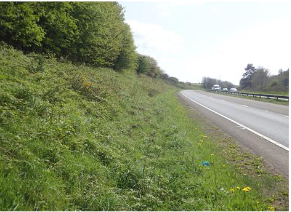
To provide baseline data on pollinating species and general invertebrate diversity, a detailed survey was carried out prior to the intervention. Both botanical and invertebrate surveys were designed in a way that they can be easily repeated at the sites and future results compared to assess changes in plant assemblage and impacts on invertebrate diversity.
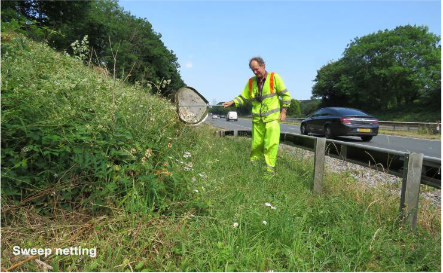
Challenges to increase biodiversity at these sites, such as those selected for this project, include reduced nutrients levels in soils, control invasive species, the establishment of a diverse multi-structured grassland community and ensure specific long-term management.
Roadside grasslands restored during this project were chosen using GIS models, which probably favoured their location in relation to the existing species rich grassland present on the A38 and the South Devon B-Lines Project – an initiative led by Buglife and South Devon Area AONB that have been creating and restoring a network of interlinked wildflower-rich areas across South Devon, connecting Dartmoor to the coast and linking our towns and urban areas to the countryside.
The challenge of this scheme was to make it as simple as possible, so that it can be easily replicated by road authorities anywhere in the country using standard roadside grass cutting machinery.
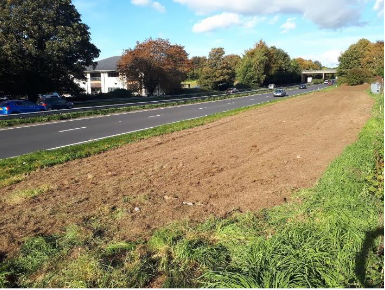
The long-term management of the newly created sites will fall under our existing Grassland Management Programme (GMP), which was designed to ensure a structured and costed programme is delivered each year, enabling biodiversity and landscape management commitments are met and providing the best value for money.
The Highways England team in the Southwest Region is proud of their grassland management - described by The Guardian as the best verges in the country a few years ago! Keeping this status and its associated benefits to biodiversity will always be a challenge, but we are more than up for it.
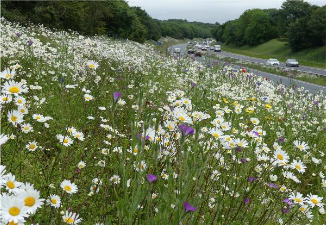
This World Bee Day, let's Bee the Change! To find out more on how you can help the Bees, visit - bumblebeeconservation.org/beethechange

